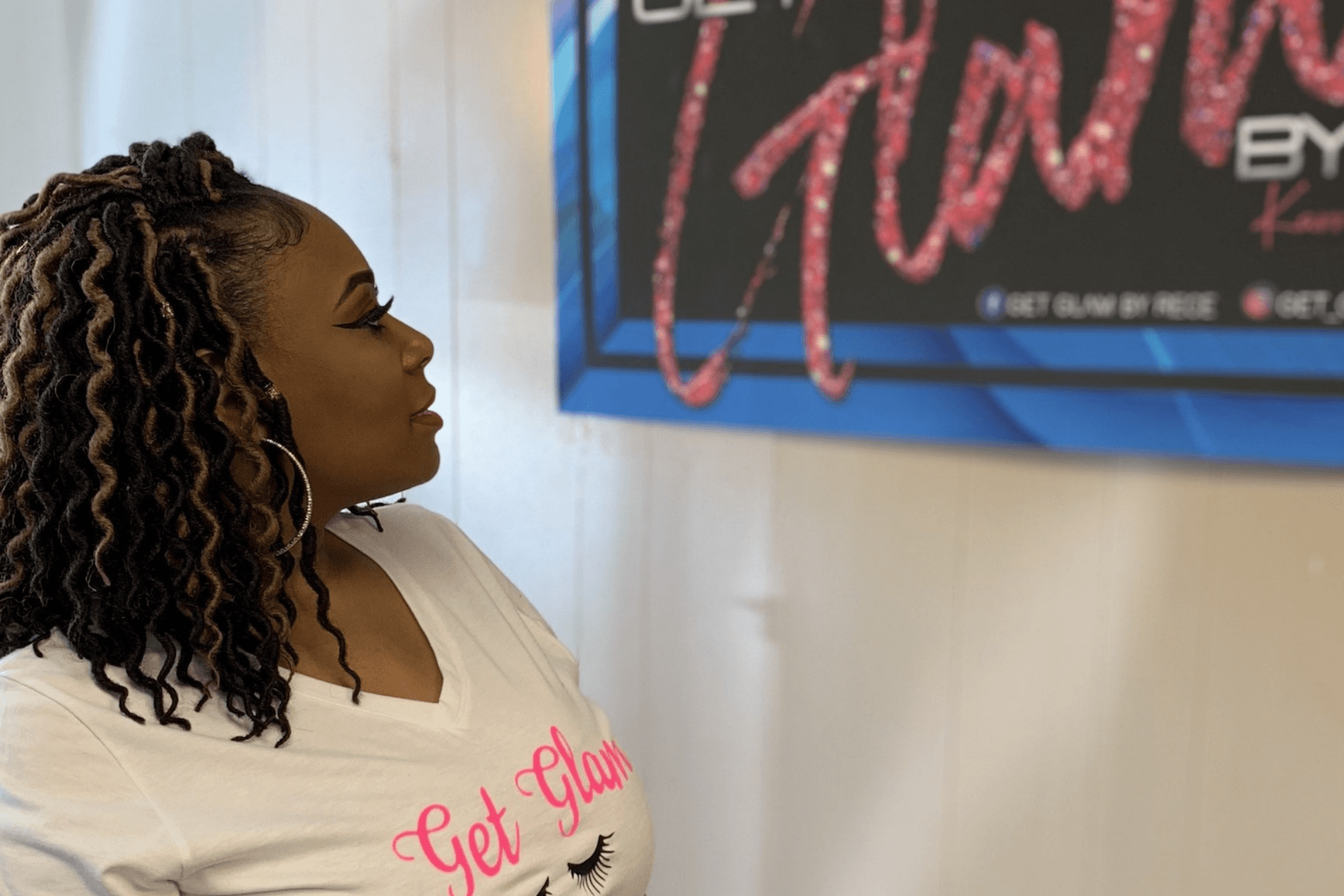Entrepreneur can now follow her dreams

Four years ago, Karrece Stewart began to see how she could develop her passion for makeup into a career. That was until the state got in her way.
Until this year, state law required either a cosmetology or estheticians license to apply makeup. The courses would teach Karrece, who lives in Fulton, a lot of things she didn’t need and very few items that would actually help her. Karrece didn’t have the time or money for a commitment that wouldn’t even help her.
But because of a change to a state law in the recently concluded legislative session, Karrece will soon be able to follow her dreams and become a professional makeup artist. House Bill 1312 exempts makeup artists, as well as eyebrow threaders and those that apply eyelash extensions from licensing requirements. These practices are extremely safe and do not involve cutting, coloring, or chemically treating hair.
Makeup is something that Karrece has been working on and toward most of her life.
Karrece spent her years as a young girl at the feet of her grandmothers watching them apply makeup. She followed that passion. Today, after years of practice, courses where she learned application technique, cleanliness, and other skills, Karrece is a developed makeup artist. Through her study, she was able to learn shading, highlighting, contouring, and makeup application based on complexion and also based on the shape of the eyes.
And because of this change to the law, Karrece’s future plans are within reach. She has her own business, Get Glam Beauty. She wants to develop her own makeup line, open her own shop, and provide makeup services for special occasions, like weddings and proms.
“With this change, I will now be able to start a business, better provide for my family, and help give women the confidence they need to see themselves in a different way,” Karrece recently told us.
This is similar to what the state did more than 15 years ago.
In 2005, the Mississippi legislature voted to set hair braiders free of unnecessary and irrelevant cosmetology regulations that had previously kept them from legally practicing their craft.
The action of the legislature came after a lawsuit was filed by the Institute for Justice on behalf of Melony Armstrong, a hair braider from Tupelo. At the time, Melony had a successful business. Until the state shut her down.
According to the state, Melony would need to spend 300 hours to obtain a wigology license, which is not related to braiding, to legally braid hair in Mississippi. To teach others, as Melony wanted to do, she would need to spend 3,200 hours in cosmetology and cosmetology instructor programs.
Those programs wouldn’t teach braiding either.
But since the legislature acted and the state freed hair braiders, Melony was free to pursue her dream, legally. Many others did too. According to a 2016 report, there are now more than 2,600 hair braiders registered with the state of Mississippi. And there has not been a health or safety complaint filed with the state.
For a comparison, Louisiana, which still requires hair braiders to spend 500 hours to receive an “alternative hair design” permit, only has 19 people who are registered to braid hair. This, despite the fact, that Louisiana has a larger number of African Americans and a larger African immigrant population than Mississippi.
But what we saw in Mississippi was a state that moved out of the way, removed unnecessary barriers, and now the field is thriving. Entrepreneurs are working, hiring more hair braiders, paying taxes, and supporting their local communities. For a state that is losing population and consistently has one of the lowest workforce rates in the country, this is a very bright spot. The legislature is right to continue this trend.
“Makeup is more than a business for me, it’s how I use my gift to uplift women.”
And now Karrece can follow her dream.
This column appeared in the Daily Journal on April 13, 2021.
